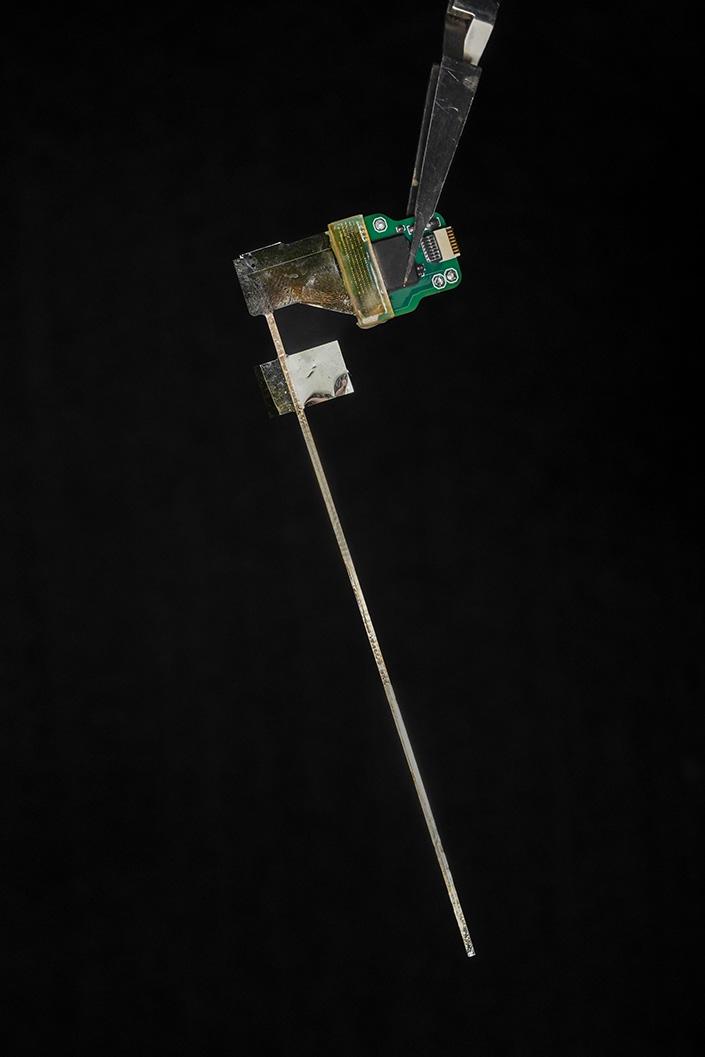In a world where technology continues to advance at lightning speed, the future of work is being revolutionized by one cutting-edge field: brain-computer interface surgery. Imagine a job where you have the ability to merge the capabilities of the human brain with the power of modern technology, paving the way for groundbreaking advancements in medicine and beyond. Welcome to the world of the brain-computer interface surgeon, where the boundaries between man and machine blur and the possibilities are endless.
Table of Contents
- The Rise of Brain-Computer Interface Technology in Medicine
- Becoming a Brain-Computer Interface Surgeon: Qualifications and Training
- Potential Benefits and Risks of Pursuing a Career in Brain-Computer Interface Surgery
- The Future of Brain-Computer Interface Surgery: Opportunities and Challenges
- Key Takeaways

The Rise of Brain-Computer Interface Technology in Medicine
As brain-computer interface (BCI) technology continues to advance at a rapid pace, the field of medicine is being revolutionized. Surgeons are now being trained to utilize BCI technology to perform complex procedures with unprecedented precision and efficiency. The ability to directly interface with a patient’s brain opens up a world of possibilities for treating neurological disorders, restoring lost function, and enhancing overall quality of life.
Imagine being able to control robotic limbs with your thoughts, or communicate with others through a computer using only your mind. With BCI technology, these once fantastical scenarios are becoming a reality. Surgeons who are skilled in utilizing BCI technology have the potential to dramatically improve patient outcomes and push the boundaries of what is possible in the field of medicine.
Training to become a BCI surgeon is not for the faint of heart. It requires a deep understanding of neuroscience, advanced surgical skills, and the ability to adapt to rapidly evolving technology. Surgeons must be able to work seamlessly with engineers and computer scientists to ensure that the technology is being used to its full potential. The role of a BCI surgeon is not just about performing surgeries, but also about pushing the boundaries of what is possible in the field of medicine.

Becoming a Brain-Computer Interface Surgeon: Qualifications and Training
As a brain-computer interface surgeon, you will need to have a unique set of qualifications and undergo specialized training to excel in this cutting-edge field. Here are some key requirements to become a successful brain-computer interface surgeon:
-
- Medical Degree: The first step towards becoming a brain-computer interface surgeon is to complete a medical degree from a reputable institution.
-
- Neurosurgery Residency: After completing medical school, aspiring brain-computer interface surgeons must undergo a rigorous neurosurgery residency program to gain the necessary skills and experience.
-
- Additional Training: To specialize in brain-computer interface surgery, surgeons will need to pursue additional training in neurotechnology and neuroengineering to understand the complexities of interfacing the brain with computers.
Once you have completed the necessary education and training, you can start your career as a brain-computer interface surgeon. This exciting field offers endless opportunities for research, innovation, and collaboration with cutting-edge technology companies to push the boundaries of what is possible in neurosurgery.
| Required Qualifications | Training Programs |
|---|---|
| Medical Degree | Neurosurgery Residency |
| Additional Training in Neurotechnology | Specialization in Brain-Computer Interface Surgery |

Potential Benefits and Risks of Pursuing a Career in Brain-Computer Interface Surgery
As a Brain-Computer Interface Surgeon, you have the potential to be at the forefront of medical innovation and technological advancement. One of the main benefits of pursuing a career in this field is the opportunity to work with cutting-edge technology that can significantly improve the quality of life for patients with neurological conditions. By using brain-computer interfaces, you can help restore mobility, communication, and independence to individuals who may have otherwise been limited by their conditions.
However, it’s important to acknowledge that there are also risks involved in pursuing a career in Brain-Computer Interface Surgery. The complex nature of the procedures and the need for precision can pose challenges and potential risks to both the patient and the surgeon. Additionally, as with any rapidly evolving field, there may be ethical considerations to navigate, such as issues surrounding patient privacy, consent, and the impact of technology on society as a whole.
Overall, becoming a Brain-Computer Interface Surgeon can be a rewarding and fulfilling career choice for those who are passionate about merging medicine with technology. By staying informed about the latest advancements in the field, honing your surgical skills, and maintaining a strong ethical compass, you can help shape the future of healthcare and make a positive impact on the lives of those in need.

The Future of Brain-Computer Interface Surgery: Opportunities and Challenges
One of the most exciting and cutting-edge fields in medicine today is brain-computer interface surgery. This revolutionary technology has the potential to drastically improve the lives of patients with neurological conditions, allowing them to control devices and communicate using only their thoughts.
As a brain-computer interface surgeon, you will have the opportunity to be at the forefront of this groundbreaking field, performing intricate surgeries to implant devices that can read and interpret brain signals. This role requires a high level of skill, precision, and expertise, as well as a deep understanding of both neuroscience and technology.
While the future of brain-computer interface surgery is filled with opportunities for innovation and advancements in patient care, there are also significant challenges that must be overcome. These include ethical considerations surrounding the use of such technology, potential risks and complications associated with surgery, and the need for ongoing research and development to improve the effectiveness and safety of these devices.
Key Takeaways
As we look towards the future of medical technology, the role of a Brain-Computer Interface Surgeon is poised to become a crucial part of healthcare advancements. With the ability to enhance the lives of patients through cutting-edge neurotechnology, the possibilities for innovation are truly limitless. Whether you are a seasoned medical professional or a curious mind looking to explore this emerging field, the opportunity to shape the future of healthcare awaits. So, are you ready to take on the challenge and become a pioneer in the world of brain-computer interfaces? The choice is yours – your next job as a BCI surgeon could be closer than you think.






